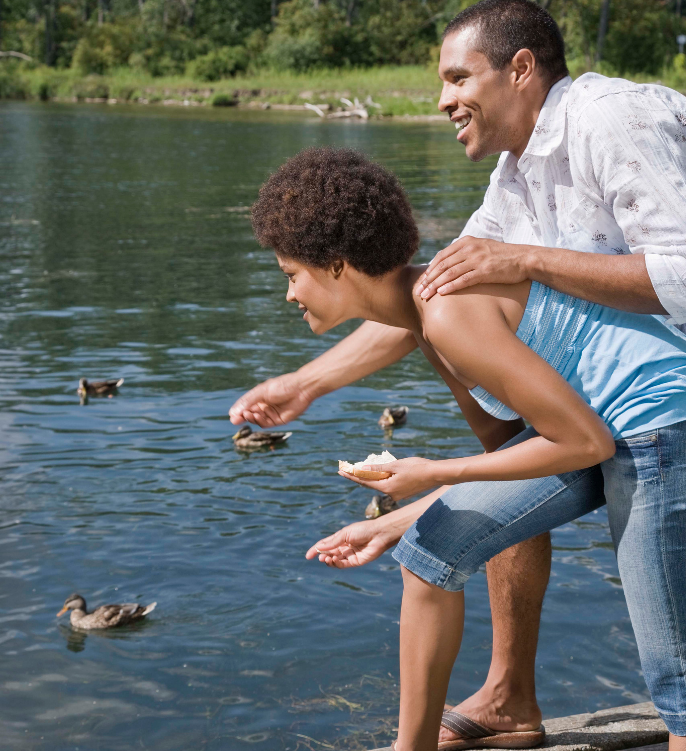It’s a gorgeous summer day, and you’ve got some stale bread to get rid of. Why not bring the kids to the park and feed the ducks? After all, what better way to get some nice time outside and get rid of some trash while you’re at it! However, you may recall hearing from one of your nature-nerd friends that you should never feed wildlife. So, which is it? Is it ok to feed ducks?
In this Biologist Ruins Everything post, we’ll learn about wild ducks, their diets, and whether, when, and how it’s okay to feed them.
Feeding wild birds
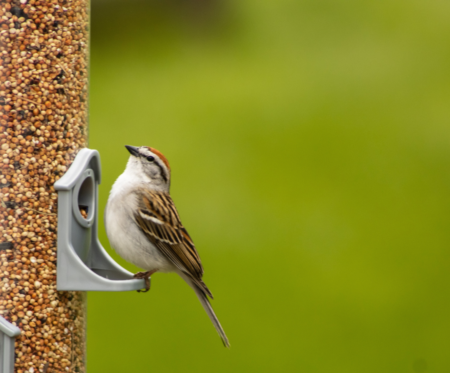
It might help to start by thinking about other circumstances in which people feed wild birds. One effective way of gardening for wildlife is providing food for birds. For example, hummingbird feeders are sure to attract gorgeous hummers in most parts of the Americas. Birdfeeders of all kinds are common in many parts of the world, and research is mixed about whether they can do any harm to wild birds. Nonetheless, getting to know the birds you’re feeding is an essential first step. This way, you can ensure you’ll be providing what’s needed and minimizing the possibility of negative consequences.
So let’s learn a bit more about ducks!
What do wild ducks eat?
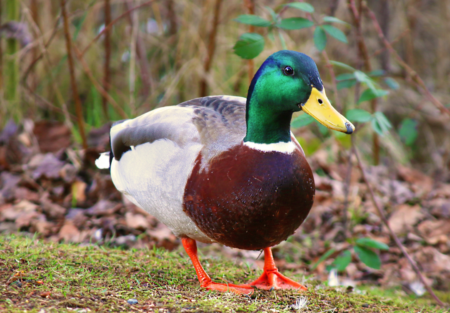
There are lots of different kinds of ducks. In fact, there are well over a hundred species, all belonging to the family Anatidae. One of the largest groups of ducks are the dabbling ducks, which use their bills to filter small invertebrates from the water. They are usually opportunistic, eating whatever foods they can get, and depend on plant foods during the winter.
Because of those feeding habits, dabblers typically have the flat, rounded “ducks bill” we associate with the group as a whole. All domestic or farm ducks, from call ducks to Peking ducks and Muscovy ducks, are descended from dabblers.
Wild dabblers tend to need a variety of nutritious foods to stay healthy. During warmer months, these include:
- Aquatic insect larvae like midges and dragonflies
- Water snails
- Worms and grubs
Especially when animal prey aren’t around, they’ll also go for:
- Seeds
- Small aquatic plants
- Wild rice
- The roots and tubers of submerged plants
With all that in mind, it’s clear that ducks aren’t picky eaters. But is it true that some “people foods” like bread and crackers aren’t actually good for them?
Can you feed ducks bread?
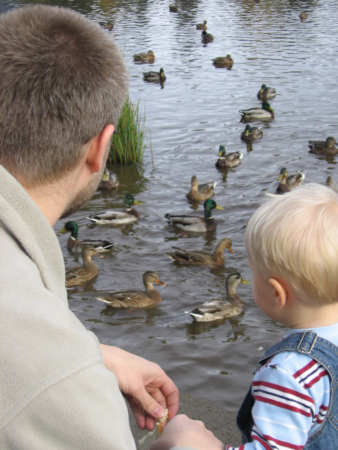
While anyone who has visited ducks in an urban pond already knows, ducks will readily gobble up bread. I’ve seen people feeding them everything from pretzels and potato chips to pieces of muffin and pizza crust. But are these things ok for ducks to eat?
The resounding answer from biologists and naturalists is no. This is primarily for dietary reasons. Specifically, bread, crackers, and other carb-heavy people foods will make ducks feel full, but do not give them the nutrition they need. It’s kind of like trying to raise a toddler on nothing but sugary candy. While the child might love the food and ask for more, their body won’t have what it needs to grow and thrive. Health problems will pile on fast, and the person won’t grow properly.
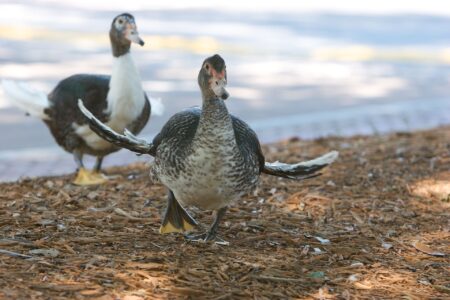
The same goes for ducks! With excessive feeding of nutrient-poor foods, they can exhibit health issues like:
- Metabolic bone disease, where they develop soft bones or joints from a lack of calcium in their diet. This can lead to problems laying eggs, or weakened birds that can’t fly to escape predators.
- Angel-wing, where excess protein in the diet makes their wings grow abnormally. Some parts develop faster than others, making their wingtips rotate outward. Birds with angel-wing are also unable to fly!
Other problems with feeding ducks
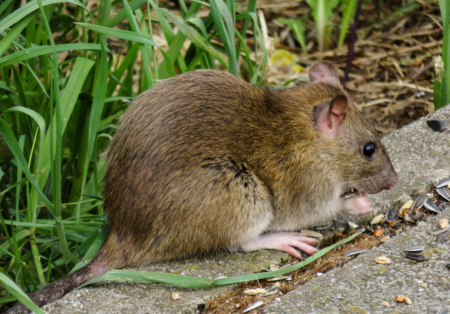
Even beyond dietary issues, wildlife agencies point out other major concerns with feeding wild ducks. Most of these have less to do with what people are feeding ducks, and more with how often they’re doing it. “What’s the harm in half a loaf of stale bread?” you might ask. And therein lies the problem: hundreds of people in your community could be having the same thought. One study by the Massachusetts Division of Fisheries and Wildlife estimated that in a single year, people fed ducks in six parks in the bay state more than 7,800 pounds (3,500kg) of food!
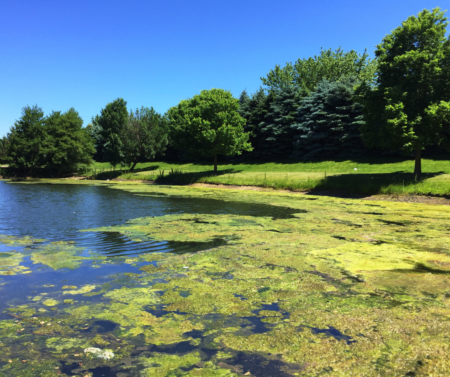
When lots of people feed ducks in the same place, it can lead to:
- Overcrowding. Ducks gather in the area in higher numbers than they normally would. This can lead to stress, fighting, and health problems for individual animals.
- Disease. All that crowding, bad nutrition, and stress for the overcrowded ducks leads them to get sick and spread disease between themselves.
- Algal blooms. What goes in must come out; between the excess of duck poo and leftover food that doesn’t get eaten, lots of fertilizer makes it into the water. This influx of nutrients allows algae to flourish, and as they begin to die, the bacteria feeding on them can ruin water quality. This harms other aquatic life and can make the pond stinky and unattractive.
- More pest species. Animals like rats will probably capitalize on leftover food and show up in greater numbers.
With all of these potential problems, you may wonder if there is a way to feed ducks without doing harm. There is some debate about this among experts, but there are cases where it’s more okay than others.
Is it possible to feed ducks responsibly?
Generally speaking, it is nearly always best to leave wildlife alone. When wildlife do need help, it’s best to leave that to professional biologists and trained technicians.
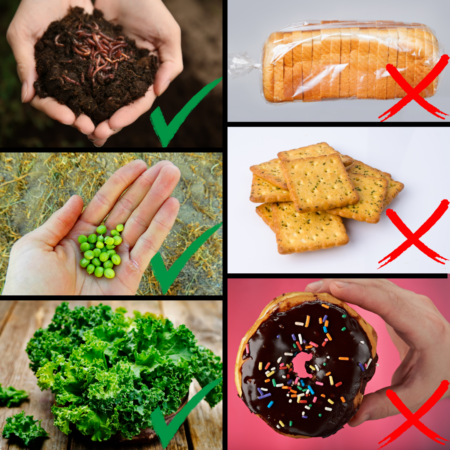
Photo (c) C.B. van Rees
That being said, feeding ducks can be a nice way to connect with nature and spend time outside. With that comes all of the health benefits of outdoor experiences. If you do want to feed ducks in your area, be sure to:
- Check the rules and regulations of the property you’ll be visiting. Many areas don’t allow feeding any wildlife!
- Choose foods that mimic ducks’ natural diets, like green vegetables or insects. You can buy crickets or mealworms at pet stores, or gather earthworms the same way you would for fishing bait.
- Cut food into tiny pieces. Like other birds, ducks don’t chew!
- Clean up after yourself. Extra food will draw pest species to the area, or harm water quality as it decomposes.
- Avoid areas where lots of people are feeding ducks. Higher densities can be harmful for wildlife and their habitat.
- Don’t throw food on land, and make sure ducks stay in the water. This keeps them safer from predators.
- Do not touch ducks, feed them only by throwing food to them.
- Keep a distance of at least 6-10 feet (2-3m) between you and the ducks.
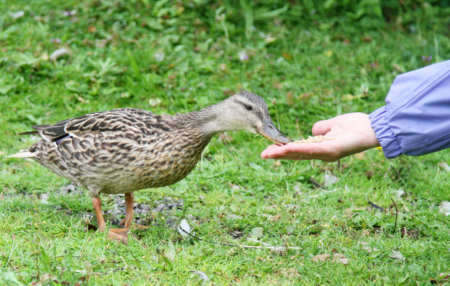
Thanks for reading about feeding ducks!
Do you have a favorite spot for duckwatching? Maybe a favorite duck species, or memorable encounter? Let us know in the comments! If you’ve got a burning question you’d like to see answered, get in touch using the Contact page.

